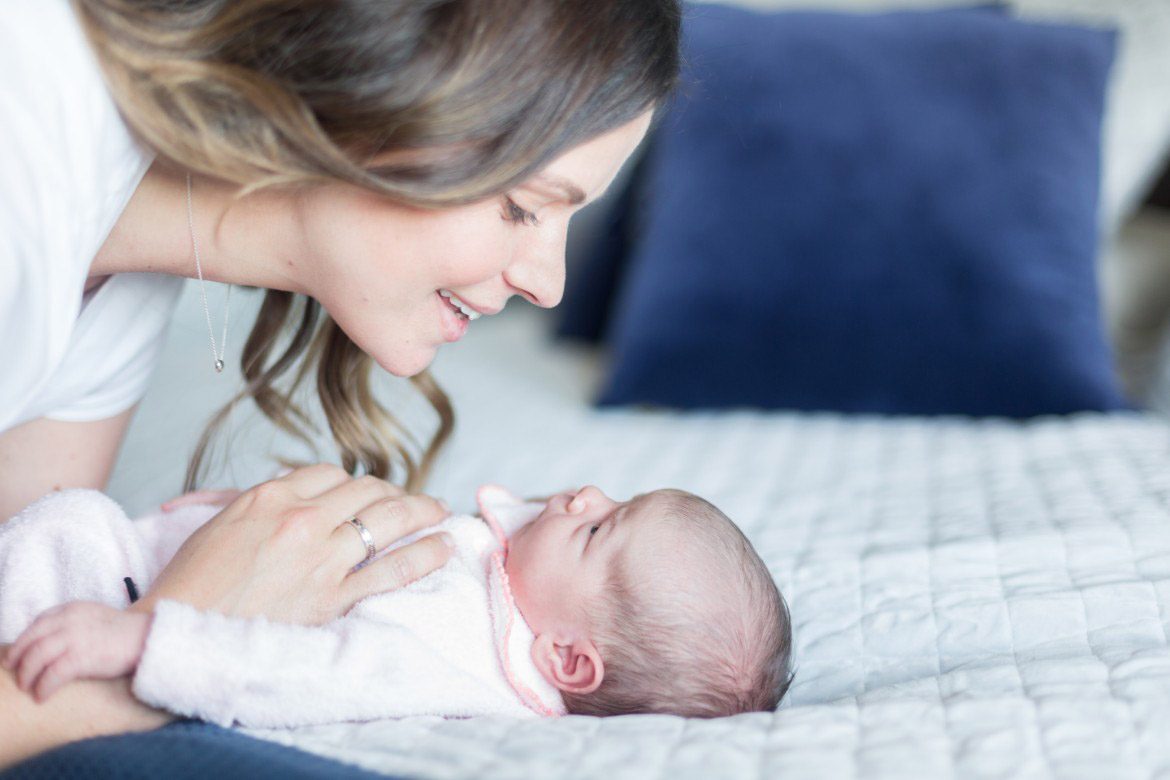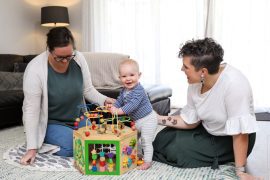By Nicole Gorring
Do you know the history of what is now called “sleep training” or “Cry It Out” (CIO)?
Because I do, and I’m going to let you in on a secret that all those “baby sleep experts”, doctors and child health nurses don’t want you to know.
It has absolutely no scientific basis.
There is no need for sleep training, there’s no proof that it is needed and there never was, because it was literally just made up.
There’s a blog post making the rounds by Grubby Mummy and the Grubby Bubbies – “Why I personally disagree with controlled crying in all its names and forms”. It’s a perfectly good post, and I’m really looking forward to the rest of her series on “The Utter Crap Spun by Baby Whisperers”, but it made me notice something. Almost all the articles or books that I’ve seen that give people’s reasons for being anti-CIO contain either a long list of arguments or the author’s own failed experience. Some have both.
But when you get right down to it, no one needs a list of reasons why they disagree with sleep training. No one needs to make arguments like “it feels wrong” (even though it does) which only opens mums up for counter arguments that it’s still what’s best for baby and we just need to get over our “maternal sensibilities” and get Dad to do it instead.
We don’t need to try and argue that yes there is actually evidence that shows it can be harmful (or at least that there is no evidence to show that it’s not harmful) which opens us up for attack in the form of being labeled “judgemental sanctimommies” or arguments that the research is mixed.
There is only one argument that we actually need. One that can not be refuted, can not be used to fuel the “mummy wars” and can not make other mum’s feel like you are calling them heartless monsters.
Ready?
It. Is. Completely. Made. Up. Bullshit.
There’s no evidence that babies need to be taught to sleep, no evidence that they need to “self settle”, no evidence that they need to cry, or that night feeding is bad or that babies can be spoiled or manipulate you or any of their other claims.
There is absolutely no more scientific proof behind the “need” to sleep train (or the methods advised) than there is for the belief that babies shouldn’t look in a mirror as it could trap them and steal their souls or that an angry or stressed mother will have poisoned milk, or that looking at a monkey too long will cause your baby to resemble a monkey.
So here’s how the “sleep training” advice actually came about.
At the turn of the last century (1800-1900) two books came out, Luther Emmett Holt’s The Care and feeding of Children and John B. Watson’s Psychological Care of Infant and Child. These are the first known books to explicitly mention the need for crying setting up the argument for “self soothing” that we now hear.
They are also the first books to specifically ban overnight feeding, and to pathologize and condemn mothers who comforted their children.
Victorian and early Edwardian ideals placed great value on “respectable” behaviour. Children were expected to call their father “Sir” at all times, corporal punishment rates were high and fathers had absolute rule of all members of the household. Society was authoritarian, patriarchal and just generally an MRA’s wet dream. Children of the wealthy were raised by staff, presented for inspection to their parents for one hour a day, and “childhood” for all classes was short and harsh, 16-hour days working in factories that produced poisonous off-gasses, climbing chimney stacks, orphanages, etc, etc. But Watson would take the “seen but not heard” mantra to the extreme. On pages 81-2 of Psychological Care of Infant and Child he states:
“Let your behaviour always be objective and kindly firm. Never hug and kiss them, never let them sit in your lap. If you must, kiss them once on the forehead when they say good night. Shake hands with them in the morning. Give them a pat on the head if they have made an extraordinarily good job of a difficult task.”
Kathryn M. Brigelow and Edward K. Morris, expand on this quote with a summary of Watson’s other beliefs on love and affection:
“Also to insure that children would be independent of any one adult’s love and affection, parents should bring different nurses into their homes on a weekly basis. Comparable positive effects on children’s independence might also be achieved by putting them in a fenced yard for large parts of the day.”
In short, Watson was obsessed with trying to sever all emotional attachments, in a misconstrued belief that doing so would allow the child to be a blank slate able to be moulded into whatever the adult chose. His ideal world was one in which all babies were immediately removed from their parents and raised by a rotating litany of staff. We now know from the Romanian orphanage discoveries that Watson’s dream actually creates failure to thrive, severe psychological distress and is essentially torture.
Watson’s book was the biggest selling parenting manual until Benjamin Spock. His influence on how we have collectively parented for the last century and a bit is huge. He is essentially the reason for all detached parenting methods and all the behaviourist based discipline techniques (time outs, privilege withdrawal, sticker charts) used by both parents and teachers. His granddaughter in her 1990 memoir wrote, “Grandfather’s theories infected my mother’s life, my life, and the lives of millions. How do you break a legacy? How do you keep from passing a debilitating inheritance down, generation to generation, like a genetic flaw?”- Mary Loretta Hartley, granddaughter to John B. Watson; in memoir of her experiences, Breaking the Silence.
And guess what – his research was never even complete. After getting caught having an affair with a student he was kicked out of his research position, and simply published his unfinished findings anyway. He then went on to use his own kids as the test subjects for much of his later publications. Unsurprisingly his own kids were pretty screwed up. Both of his sons attempted suicide. One succeeded; the other only recovered thanks to years of psychoanalysis and eventually became a Freudian analyst. (His father hated Freud)
In The Care and feeding of Children, the first parenting book written by a man to “go viral”, Emmett Luther Holt outlines strict feeding schedules for babies from birth and bans mothers from sleeping with their babies. This same advice is still given in books written by paediatricians today. Holt also maintained that mothers should refrain from kissing their babies, and a baby under six months old should not be played with. Ever. If said infant should cry in protest wanting to be “indulged” by its mother then, “it should simply be allowed to ‘cry it out’. This often requires an hour, and in extreme cases, two or three hours. A second struggle will seldom last more than ten or fifteen minutes, and a third will rarely be necessary. Such discipline is not to be carried out unless one is sure as to the cause of the habitual crying.”
This is the first known mention of the phrase “Cry It Out” which is now commonly associated with curing bad sleep habits, rather than curbing a baby’s desire to be played with or just generally given human interaction, but you can see the clear allusions to the entire concept of “spoiling” a child with love and affection – if you “let it get it’s way”.











